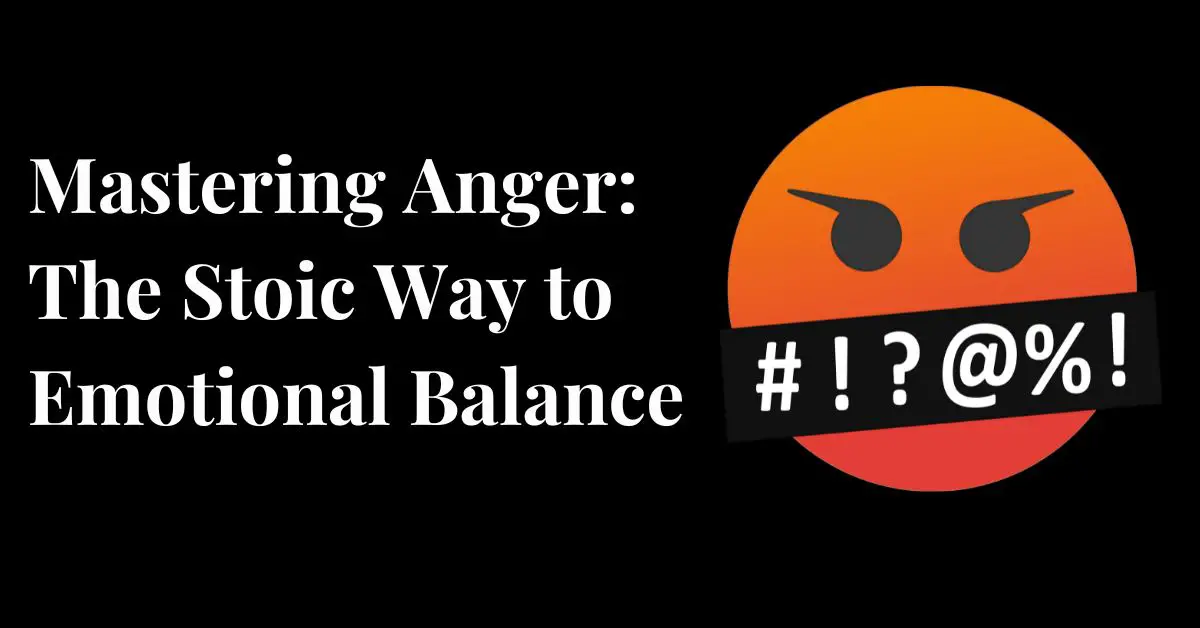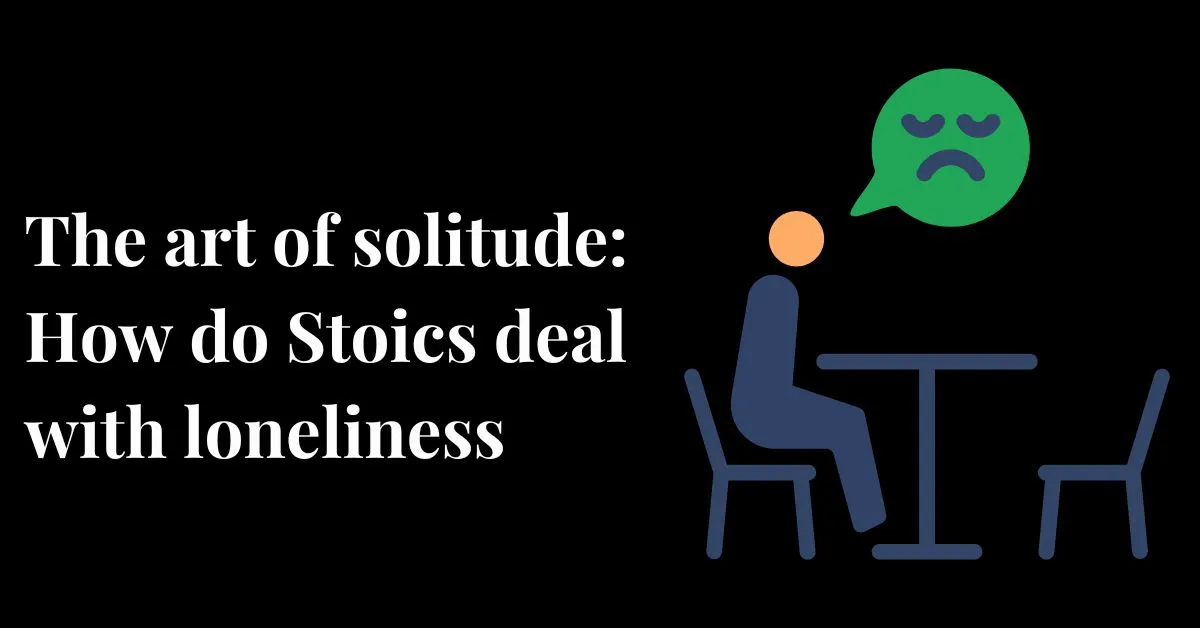Mastering Anger: The Stoic Way to Emotional Balance
Anger is powerful.
There’s no doubt that we all get angry, sometimes even at the most minor inconveniences. However, when that angers causes us to harm ourselves or others, then it becomes destructive. The Stoic approach to anger is to understand it as a natural and normal emotion, but also to recognize that it is ultimately up to the us to control our response to it.
In this article, we will explore how Stoics should deal with this anger in their daily lives. We will delve into the Stoic beliefs about the nature of anger, its causes and the techniques for controlling it.
Table of Contents
Acceptance
Accepting the reality of a situation is a crucial aspect of Stoicism, as it helps individuals to detach themselves from their emotions and to see things objectively. When we are faced with a situation that causes anger, it is easy to get caught up in our emotions and to react impulsively.
However, by accepting the reality of the situation, we can take a step back and see things more clearly. This allows us to respond to the situation in a calm and rational manner, rather than becoming consumed by our emotions and acting recklessly.
Focusing on the things that we can control, such as our own thoughts and actions, is also an important aspect of Stoicism. It helps us to realize that we cannot control external events, but we can control our emotional reactions to them. By taking responsibility for our own thoughts and actions, we can avoid getting caught up in our emotions and instead, respond to the situation in a constructive way.
Additionally, by focusing on what we can control, we can shift our attention away from the negative aspects of the situation and focus on what we can do to improve it. This can help us to maintain a sense of perspective and to see the situation in a more positive light.
Forgiveness
Marcus Aurelius once said ‘The best revenge is to be unlike him who performed the injury.’
This quote suggests that the best way to deal with anger towards someone who has wronged you is to not let their actions affect you and to maintain your own sense of integrity and morality.
Instead of seeking revenge or allowing anger to consume you, choose to rise above the situation and be the better person. This way, you are not allowing the person who hurt you to continue to have power over your emotions and actions. By controlling your anger, you are taking back the power and maintaining your own sense of self-control and inner peace.
Reflection
Self-reflection is a powerful technique that allows us to understand the root cause of our emotions and to identify any unhelpful thoughts or judgments that may be fueling them. By becoming aware of these patterns, we can then work to change them and respond to situations in a more rational, measured, and Stoic way.
Stoics believe that by understanding the root cause of our anger, we can learn to manage it more effectively. This is why self-reflection is such an important technique. It allows us to take a step back from our emotions and to examine them objectively. By doing so, we can gain insight into the underlying causes of our anger and take steps to address them.
For example, if we find that we are frequently getting angry because of unhelpful thoughts such as “I always get overlooked for raises” we can then work to change these thoughts by challenging them and replacing them with more positive and realistic thoughts, such as “I am capable of achieving my goals and will work towards them.”
Conclusion
In conclusion, anger is a natural emotion that we all experience at some point in our lives. As Stoics, we understand that it is ultimately up to us to control our response to it.
Through techniques such as self-reflection, acceptance, and forgiveness, we can learn to understand the root cause of our anger and to respond to situations in a calm and rational manner.
By remaining detached from our emotions and focusing on the things that we can control, we can maintain our inner peace and integrity, even in the face of adversity. Remember, the best revenge is to be unlike the person who caused the injury.






